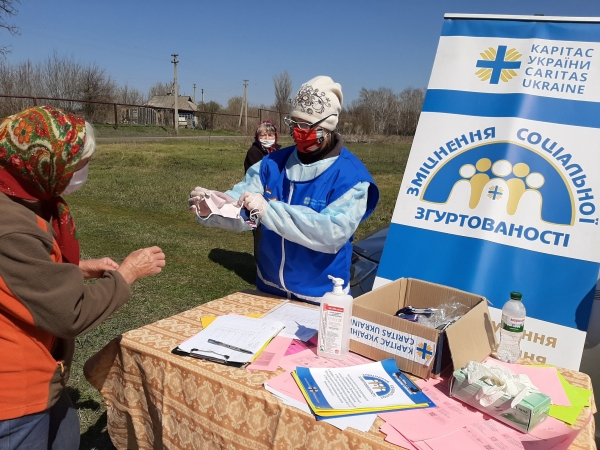The conflict in Ukraine, which started in 2014 between the Ukrainian government and Russian-backed separatist forces, resulted in more than 1.4 million internally displaced people (IDPs) and 3.4 million people in urgent need of humanitarian assistance.
Ukraine was already depleted by years of protracted violence when it was hit by the Covid-19 pandemic in March 2020, reaching a rate of 27,856 contagions in June. The Norwegian Refugee Council (NRC), an independent humanitarian organization, has been operating in Ukraine since the beginning of the conflict in 2014, providing assistance to displaced and conflict-affected populations. In its latest report, published in June, the NRC analyzes the critical situation of people living in eastern Ukraine, which has been dramatically worsened by the pandemic, urging for a coordinated response to this double crisis.
The prolonged conflict in eastern Ukraine, as the report estimates, has affected more than 5 million people. The conflict resulted in severe socio-economic consequences for them, especially those living in the area closest to the border line which separates the areas under and outside the Ukrainian government’s control. Communities living in non-government controlled areas (NGCA) already had limited access to healthcare and basic essential services, and Covid-19 exacerbated their dramatic conditions. The pandemic caused price increases of food, hygiene items and transportation, as well as a general loss of income, forcing people to live in crowded spaces to respect quarantine measures.
Moreover, Covid-19 resulted in movement restrictions across the border line, which is usually crossed by 1.4 million people a day to access social payments, pensions, medication or state administrative services. As the NRC recommends, humanitarian exceptions for crossings should be urgently regulated and, in addition, safety conditions and sanitation at check-points should be improved. The pandemic also drew attention to many deficiencies affecting Ukraine’s national policy and legal framework. For instance, only those who are regularly registered as IDPs can access pensions and social payments but, according to Ukrainian law, any document issued in non-government controlled areas is invalid. This legislation limits access to vital subsidies for many of NGCA residents, fostering inequality. Even though a draft law to remove such discriminatory practice was registered in the Ukrainian Parliament, the legislative process has been suspended because of Covid-19 and, as noted in NRC’s report, adopting this law is crucially important.
Notwithstanding the further difficulties caused by the pandemic, eastern Ukraine is still in need of humanitarian solutions due to prolonged conflict in the area. Ongoing violence, as well as mines and unexploded ordnances (UXO) contamination, pose direct physical threats to people. NRC’s report solicits a coordinated humanitarian response, especially in the areas outside the government’s control. People living in these conflict-affected areas, for instance, have often been denied access to water and sanitation - a globally recognized right - because of water stoppages due to the fightings or the inability to treat water. With regards to this problem, the report urges substantial changes in water supply in order to ensure that this basic service is available to everyone, as well as an improvement in the hygiene and sanitation of crossing points.
Moreover, the report recommends strengthening the political dialogue on the Ukrainian conflict in order to reach a solution, especially in light of the United Nations Secretary General’s appeal for a global ceasefire consequentially to the Covid-19 pandemic. Therefore, a better access of humanitarian agencies to the conflict-affected areas must be facilitated.
Finally, it is crucial to ensure that the recently revised Ukrainian Humanitarian Response Plan (HRP) 2020, aimed at integrating existing humanitarian practices in the area to respond to the double crisis, is fully funded. As a matter of fact, the Ukrainian HRP was only 15.4% funded in June 2020.
To read more, please visit:
Author: Margherita Curti; Editor: Matteo Consiglio




